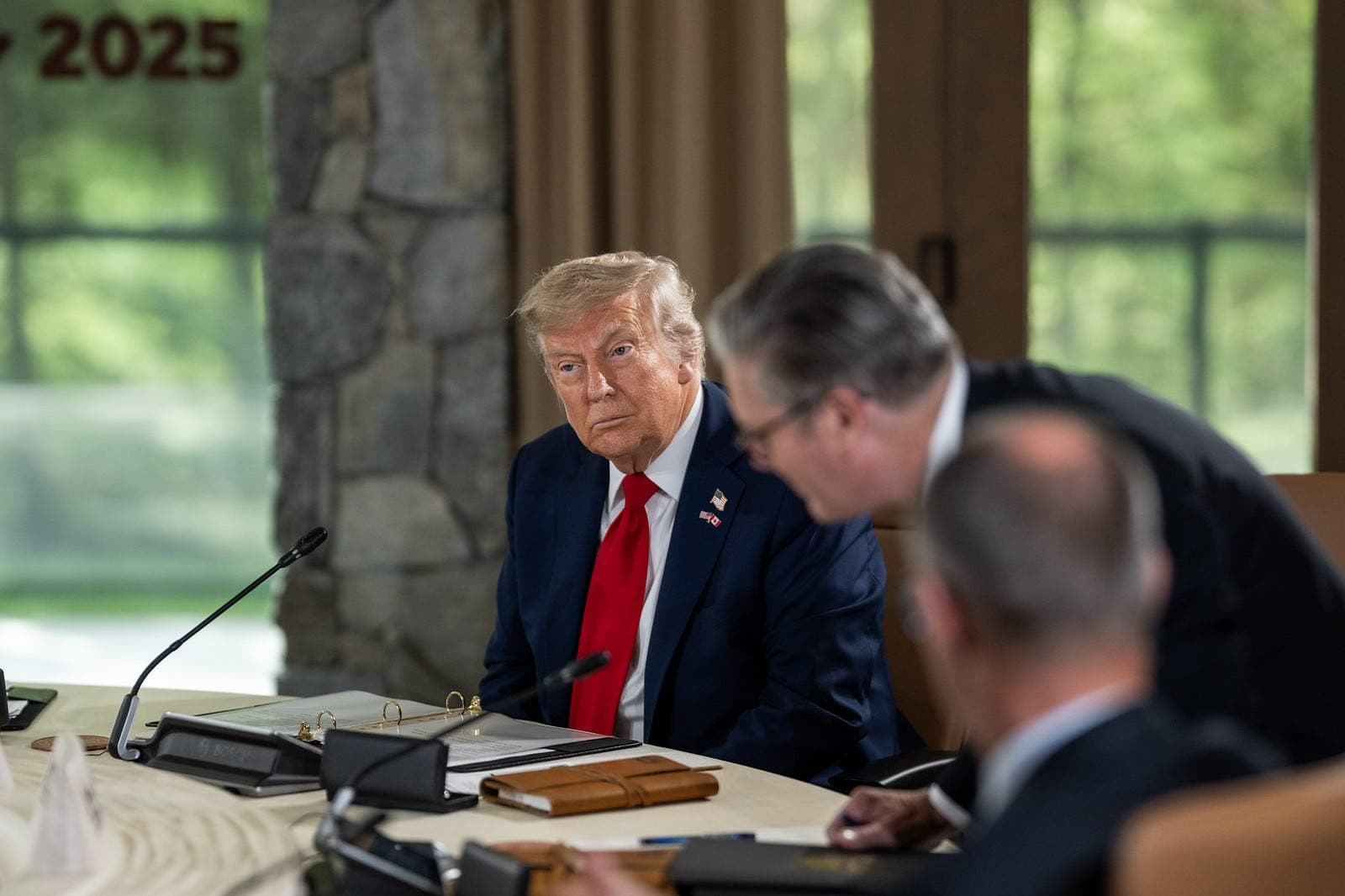We're loading the full news article for you. This includes the article content, images, author information, and related articles.
The world's two largest economies have pulled back from a damaging trade war, announcing tariff reductions and agreements on critical materials. For Kenya, the deal could stabilise global markets but intensifies the delicate diplomatic balancing act between its key partners.

BUSAN, SOUTH KOREA – United States President Donald Trump and Chinese President Xi Jinping announced a significant de-escalation in their protracted trade war on Thursday, following their first face-to-face meeting in six years. The talks, held on the sidelines of the Asia-Pacific Economic Cooperation (APEC) summit in Busan, South Korea, resulted in the U.S. agreeing to lower some tariffs in exchange for Chinese commitments on fentanyl trafficking and the continued export of rare earth minerals.
President Trump declared the meeting a “great success,” rating it a “12 out of 10” to reporters aboard Air Force One. He confirmed that the overall U.S. tariff rate on Chinese goods would be reduced from 57% to 47%. This reduction includes halving a 20% tariff linked to fentanyl production, a synthetic opioid that has fueled a public health crisis in the United States. In return, President Xi reportedly pledged to crack down on the production of the drug.
Key agreements also emerged on critical trade issues that have roiled global markets. China committed to resume purchasing U.S. soybeans “immediately,” a move aimed at appeasing American farmers hit hard by retaliatory tariffs. Furthermore, a dispute over China's control of rare earth minerals, which are vital for high-tech manufacturing, was declared “settled” by Trump, who stated that Beijing would ensure their continued supply under a one-year deal. The Chinese Ministry of Foreign Affairs confirmed that a “consensus” had been reached on trade issues, urging both sides to finalize the details swiftly to reassure the global economy.
The meeting, which lasted over 90 minutes at Gimhae Air Base, was characterized by cautiously optimistic rhetoric from both leaders. President Xi, according to Chinese state media, told Trump that while differences are normal, the two economic giants should strive to be “partners and friends.” The leaders also announced plans for further dialogue, with Trump scheduled to visit China in April 2026 and Xi to visit the U.S. thereafter.
The truce was met with relief in global financial markets, which had been braced for further escalation. However, the long-term stability of the relationship remains uncertain. The agreement is structured as a one-year deal, and fundamental tensions over technology, intellectual property, and geopolitical influence persist. Notably, the sensitive issue of Taiwan was not discussed, according to President Trump.
For Kenya and the wider East Africa region, the de-escalation carries significant implications. A more stable global trade environment is broadly positive, potentially easing inflationary pressures and steadying demand for commodities. However, the détente places Nairobi in an increasingly complex diplomatic position. Kenya has cultivated deep economic ties with both superpowers; China is its largest bilateral lender and a critical partner in infrastructure development, including the Standard Gauge Railway, while the U.S. is a major trading partner and a designated “Major Non-NATO Ally.”
In recent months, Washington has expressed concern over Nairobi's deepening relationship with Beijing. Comments by President William Ruto in April 2025, describing Kenya and China as “co-architects of a new world order,” prompted influential U.S. lawmakers to call for a review of Kenya's special ally status. This has forced Kenya to perform a delicate balancing act, reassuring Washington of its continued partnership while pursuing its national interests with China.
The Trump-Xi agreement does not erase this underlying strategic competition. As the U.S. and China shift from open trade conflict to managed rivalry, nations like Kenya will face continued pressure to navigate their allegiances carefully. The stability promised by the Busan summit provides a welcome reprieve, but it also underscores the strategic imperative for Kenya to fortify its foreign policy, balancing the benefits of engagement with both global powers to secure its long-term economic and geopolitical interests.
Keep the conversation in one place—threads here stay linked to the story and in the forums.
Sign in to start a discussion
Start a conversation about this story and keep it linked here.
Other hot threads
E-sports and Gaming Community in Kenya
Active 9 months ago
The Role of Technology in Modern Agriculture (AgriTech)
Active 9 months ago
Popular Recreational Activities Across Counties
Active 9 months ago
Investing in Youth Sports Development Programs
Active 9 months ago